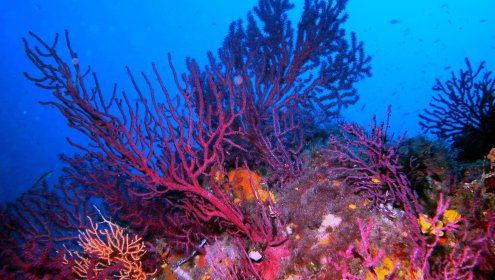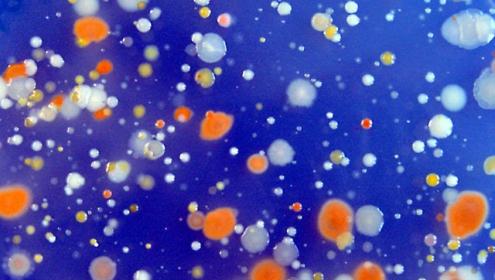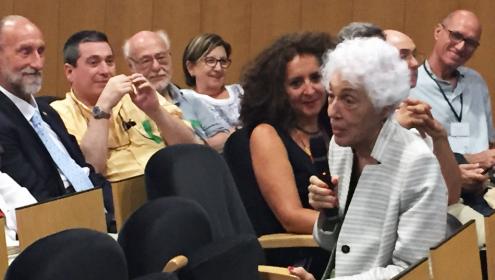LATEST TOPICS
Scientific news
The Institute of Marine Sciences (ICM-CSIC) leads a study, published in Global Change Biology, which proposes a conceptual framework and classification for ocean acidification refugia (OAR) for the first time. OARs are specific locations where ocean acidification impacts could be less intense, protecting biodiversity.
Marine bacteria that capture light and transform it into biochemical energy are not a rarity, as previously thought. A work published this week in the journal Science Advances, with the participation of the Institute of Marine Sciences (ICM-CSIC), shows that sunlight, the main source of energy sustaining marine ecosystems, is mainly captured by bacteria, and not by algae and cyanobacteria (also called blue-green algae), as previously thought.
Fisheries represent one of the main economic sectors affected by marine litter. The amount of garbage trapped in the networks can also damage ships and rigging. A study by the Institute of Marine Sciences has evaluated the amount and type of marine litter in the shallow waters of two fishing areas, the Delta del Ebro (Tarragona) and Vilanova i la Geltrú (Barcelona). Both areas are part of the Natura 2000 network.
On Thursday, July 11th, the Institute of Marine Sciences (ICM-CSIC) hosted a meeting between a Chinese delegation, led by Prof. Chunli BAI, President of the Chinese Academy of Sciences (CAS), and CSIC, to sign a collaboration agreement to promote remote sensing research in China and Spain.
Domestication involves raising animals in a different environment from their natural habitat, which ends up modifying their behaviour and physical appearance. Charles Darwin was the first to realize that domestic animals were not only more docile, but had common characteristics such as a shorter snout, drooping ears and lack of skin pigmentation in some areas. These changes are known as the "domestication syndrome".
Today, the Institut de Ciències del Mar (Institute of Marine Sciences - CSIC) celebrates a tribute to Pepita Castellví, one of her most projected and pioneer researchers in Antarctica, coinciding with her 84th anniversary. A pioneer of Spanish research in Antarctica, she led the installation of the Spanish Antarctic Base and was its first director.





